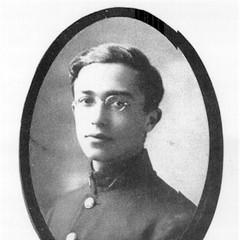Letitia Elizabeth Landon Quotes - Page 5
Letitia Elizabeth Landon (1850). “The Poetical Works of Letitia Elizabeth Landon”, p.33
Letitia Elizabeth Landon (1837). “Ethel Churchill: Or, The Two Brides”, p.240
Letitia Elizabeth Landon (1831). “Romance and Reality”, p.211
Letitia Elizabeth Landon (1860). “The Complete Works of L.E. Landon”, p.100
Good taste is his religion, his morality, his standard, and his test.
Letitia Elizabeth Landon (1852). “Romance and reality”, p.123
Letitia Elizabeth Landon (1837). “Ethel Churchill: Or, The Two Brides”, p.96
'The Poor'
Letitia Elizabeth Landon (1852). “Romance and reality”, p.16
There is a large stock on hand; but somehow or other, nobody's experience ever suits us but our own.
Letitia Elizabeth Landon (1831). “Romance and Reality”, p.97
Letitia Elizabeth Landon (1837). “Ethel Churchill: Or, The Two Brides”, p.79
But ignorance is happiness,When young Hope is to show the way
Letitia Elizabeth Landon (2003). “Poems from the Literary Gazette”, Scholars Facsimilies & Reprint
Letitia Elizabeth Landon (1829). “The Venetian bracelet: the lost pleiad ; a history of the lyre, and other poems”, p.111
Letitia Elizabeth Landon (1841). “Life and literary remains of L.E.L. [ed.] by L. Blanchard”
Letitia Elizabeth Landon (1850). “The Poetical Works of Letitia Elizabeth Landon”, p.194
Letitia Elizabeth Landon (1841). “Life and literary remains of L.E.L. [ed.] by L. Blanchard”
Letitia Elizabeth Landon, F. J. Sypher (2006). “Poems from annuals”, Scholars Facsimilies & Reprint
Letitia Elizabeth Landon (1837). “Ethel Churchill: Or, The Two Brides ...”, p.279
Letitia Elizabeth Landon (1850). “The Poetical Works of Letitia Elizabeth Landon”, p.163
Letitia Elizabeth Landon (1839). “Poetical Works”, p.130
Letitia Elizabeth Landon (1837). “Ethel Churchill: Or, The Two Brides”, p.235
... true love is like religion, it hath its silence and its sanctity.
Letitia Elizabeth Landon (1833). “The Book of Beauty: Comprising a Collection of Tales, Poems, &c”, p.88

![No thoroughly occupied man was ever yet very miserable.[to feel unhappy you need the time to consider how your lot could be better]](http://cdn.quoteddaily.com/images/letitia-elizabeth-landon/no-thoroughly-occupied-man-was-ever-yet-very-miserableto-feel-unhappy-you-need-the-time-to-consider-how-your-lot.jpg)





